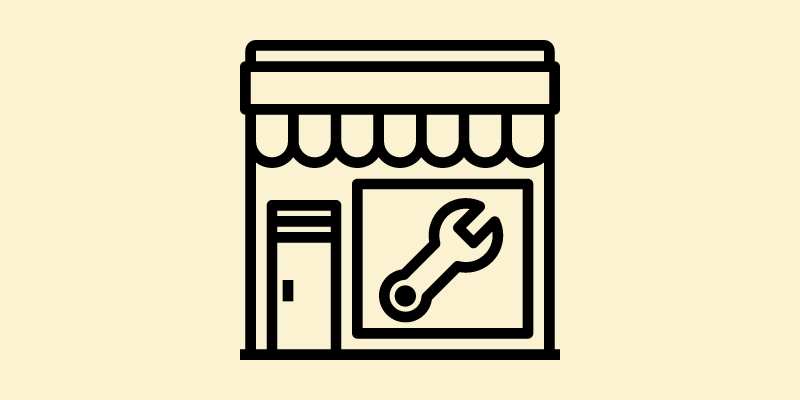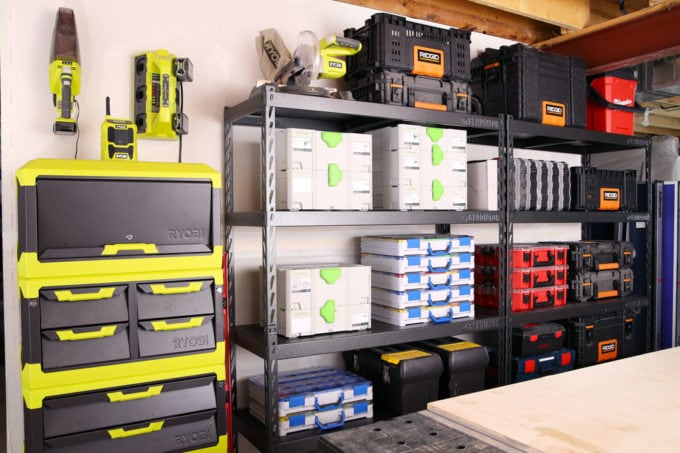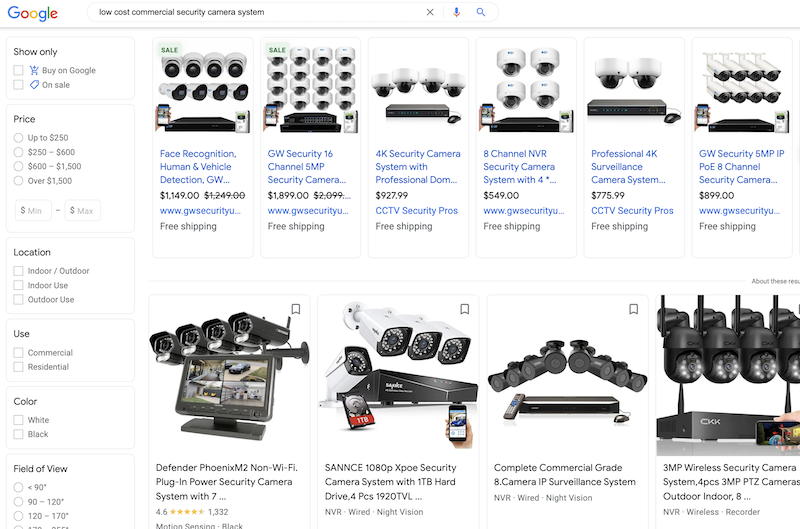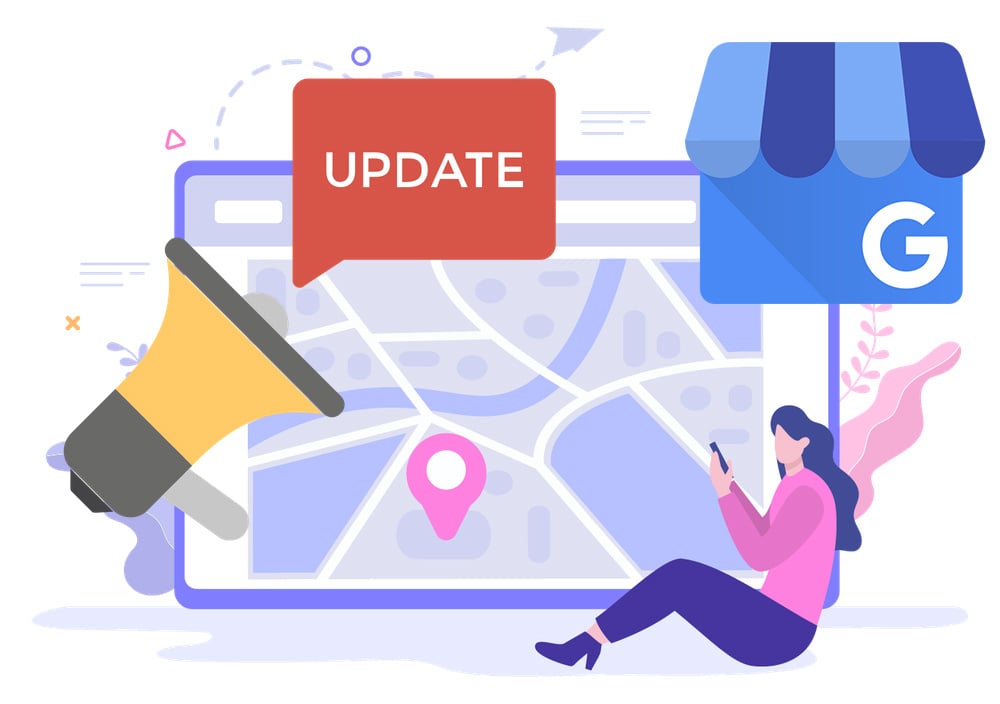8 Essential Pieces of Business Equipment to Start Your Local Service Business
Ready to start your business? Here’s a list of all the basic business equipment you’ll need to hit the ground running.

Starting a local service business is a thrilling journey filled with potential, but it's also one that requires careful prep. Whether you're opening a plumbing service, a landscaping business, or an architectural consulting firm, having the right equipment ready to go is the key to a smooth launch.
It’s true that every service business is different. But there are several universal tools that every local provider should consider.
From the supplies that keep your operation organized to the technology that powers your day-to-day, and from the marketing materials that get the word out to the specialty equipment unique to your industry, every piece has its part to play.
We're going to talk all about the 8 most important tools you'll need to get your business up and running. We'll show you how to choose the right tools, and how to use them to make sure your business is successful. With these tools, you'll be on your way to building a business that lasts!
Jump To
- Launching a Local Service Business in Your Area - What You Need to Know
- 8 Pieces of Equipment You Need to Start Your Local Service Business
- Key Takeaways
Launching a Local Service Business in Your Area - What You Need to Know
Launching a local service business is more than just opening your doors; it's about understanding and navigating the unique landscape of your community.
How do you balance convenience with professionalism in choosing a location? What are the hidden costs you need to anticipate? How can you protect your investment?
In this section, we'll explore these questions and more, equipping you with the knowledge to thrive in your local market.
Where to Set Up Base: Home Office Vs Separate Office Space
One of the most important decisions when starting a local service business is where to set up your operations.
Working from home is convenient, cost-effective, and flexible, making it suitable for small startups. However, it may impact work-life balance and inhibit growth. On the other hand, renting a separate office space provides a professional environment, room for expansion, and better separation between work and personal life. However, it comes with extra expenses for rent, utilities, and transportation.
It's important to carefully evaluate the unique needs of your business and consider future growth opportunities before choosing the ideal location.
Tax Deductions: Home Office Vs Separate Office
For costs’ sake, many brand new business owners choose to run their business from their home, and this makes a lot of sense. When doing so, it’s important to know what expenses you’re able to write off on your taxes. Here’s a quick list:
- Portion of Rent or Mortgage Interest: You can deduct the percentage of your rent or mortgage interest that corresponds to the portion of your home used exclusively for business. This means claiming a percentage of the total square footage in your home you’ve dedicated to your business. See Turbo Tax’s guide to calculating your business square footage here.
- Utilities: A percentage of utilities such as electricity, water, and internet can be deducted based on the square footage used for business. This is calculated just like you would a portion of your rent or mortgage interest.
- Depreciation: If you own your home, you may be able to take a depreciation deduction.
- Property Taxes: A portion of property taxes related to the business space may be deductible.
Renting your own office space may cost more, but that also means you can deduct more on your taxes, and you don’t have to do any fancy calculations on square footage.
- Full Rent Deduction: Rent paid for separate office space is generally fully deductible.
- Utilities: Utilities specifically for the business space can be fully deducted.
- Insurance: Separate insurance required for the office space would be deductible.
Here’s a side-by-side comparison:
|
Expense Type |
Home Office (Portion Deductible) |
Separate Office Space (Fully Deductible) |
|
Rent/Mortgage Interest |
Yes (Portion) |
Yes (Full Rent) |
|
Utilities |
Yes (Portion) |
Yes (Full) |
|
Depreciation |
Yes (If applicable) |
No |
|
Property Taxes |
Yes (Portion) |
No |
|
Insurance |
No |
Yes (If applicable) |
Startup Costs and Financing
Depending on the type and size of your business, you might consider how much your initial equipment costs will be and secure financing.
Financing is a valid option to help you with startup costs for a few reasons:
- While you shouldn’t overspend on your equipment, you should make sure that you’re using tools that are strong enough to withstand professional services. You don’t want to get into business and three months in you have to replace expensive equipment. Get the right equipment the first time.
- Getting one or two business credit cards is usually easy for new business owners with decent credit. With these cards, you can take advantage of 0% introductory financing and begin building your business credit.
- Financing helps you get your business up and running fully as soon as possible. This brings you fast sales so that you can grow your business right away.
Anticipating Future Maintenance and Upgrades
As you gather your business equipment, become aware of maintenance and replacement costs. Take these future or regular maintenance costs into account as you forecast your sales, fixed and variable costs.
Preventing Theft and Vandalism
Nothing is worse than getting all the expensive equipment you need and then having it stolen or damaged. That’s why we strongly recommend (and discuss below) the importance of a security system.
Whether keeping your supplies and equipment at home or renting a storage unit, make sure that there are reliable security measures in place to protect your assets. Consider also purchasing tools and equipment insurance so that you receive help in the event of theft or vandalism.
8 Pieces of Equipment You Need to Start Your Local Service Business
1. Equipment Storage and Organization Tools
Equipment storage and organization tools are paramount for local service businesses, playing a vital role in efficiency, productivity, and overall success. Here's why they are so important:

Source: Abby Organizes, “Top 10 Best Tool Storage Systems for Organizing Your Workshop”
- Efficiency & Accessibility: Effective storage and organization of tools and equipment make it easy to access them quickly. This helps to save time that would otherwise be spent searching for the right tool for service calls or tasks. By being able to access the right tools quickly, local service businesses can deliver their services promptly, respond to service calls efficiently, and complete jobs on time.
- Equipment Protection: Keeping your tools and equipment properly stored and organized helps to protect them from getting damaged. This can happen if they are handled roughly or exposed to harsh environmental conditions. By taking good care of your tools, you can make them last longer and avoid having to replace them. This helps to save money and preserve the financial resources of your business.
- Professionalism: A workspace that is well-organized shows that the business has a professional approach. This can make a positive impression on employees and even yourself. An organized workspace communicates a sense of competence and a focus on details, which sets the tone for your work culture.
- Safety: In a lot of industries, there are specific regulations that require proper storage and handling of equipment. By properly storing equipment, businesses can comply with these rules. Additionally, keeping equipment in an organized manner minimizes the chances of accidents due to clutter or improper storage.
- Inventory Management: Effective organization is beneficial for managing inventory by simplifying the process of tracking available items and identifying what needs to be restocked. This approach avoids unnecessary over-purchasing and optimizes the investment made in inventory. By maintaining an appropriate level of stock, businesses can ensure they have just enough inventory on hand to meet demand without excess.
- Saving Space: Using smart storage solutions helps businesses make the most of the space available in vehicles, home offices, or separate facilities. This is particularly important for businesses with limited space because it allows them to store a larger amount of equipment in an organized manner.
- Faster, Higher-quality Work: Having tools and equipment that are well-organized plays a key role in maintaining a seamless workflow. When employees know exactly where to find what they need, it helps to minimize downtime and frustration. This enables them to focus more on the task at hand, increasing productivity and efficiency.
PRO TIP: Set aside an entire room (or multiple rooms) for equipment and supplies. Then outfit that room with shelves and bins organized according to work day tasks. Train your employees to keep this space organized and clean.
2. Security System
Security systems are a vital component for local service businesses, providing both protection and peace of mind. Here's why implementing such systems is so crucial:

Source: Google Shopping
- Equipment Protection: Local service businesses are often at risk of having their valuable equipment, tools, and inventory stolen. To prevent unauthorized access, security systems such as alarms, cameras, and access control mechanisms can be put in place. These systems serve as a protective measure, ensuring that essential assets are safeguarded from theft or damage.
- Data Security: In addition to physical assets, businesses often store important and sensitive information such as customer details, financial records, and proprietary data. To ensure the security of this information and protect it from cyber threats, it is crucial to have security measures in place. This includes implementing firewalls and encryption, which serve as essential safeguards in safeguarding sensitive data.
- Safety: Having security systems in place can play a crucial role in ensuring the safety of employees, especially in situations where businesses operate during non-standard hours or in areas where safety is a concern. By using surveillance cameras and panic buttons, businesses can contribute to creating a safer working environment for their employees.
- Insurance Savings: Implementing strong security measures can potentially lead to a reduction in insurance premiums. Insurance providers generally perceive the presence of effective security measures as a way to minimize risk, resulting in potential cost savings on insurance policies.
- Legal Compliance: In certain jurisdictions and industries, there are specific legal obligations when it comes to security. Adhering to these regulations is not only required by law but also demonstrates responsible business conduct and practices.
- Monitoring and Response: Up-to-date security systems now offer prompt real-time monitoring, providing business owners with notifications in case of unauthorized access attempts or any other security breaches. Responding quickly to such situations can help mitigate the resulting harm and lead to faster resolution of the issue with law enforcement authorities.
- Remote Management: A significant number of security systems now support remote monitoring and management by utilizing mobile apps or online platforms. This feature can be especially beneficial for business owners who frequently travel or oversee multiple locations.
- Peace of Mind: Being assured that the business, its assets, information, and employees are safeguarded from potential threats frees up owners to concentrate on the growth and progress of their business operations without any undue anxiety or stress.
PRO TIP: Invest in a low-cost, commercial camera security system that you can manage from your smartphone. Place cameras at every key entrance and facing your most valuable equipment.
3. Company Vehicle
Depending on the nature of your business, you may need a company vehicle from the start. A branded company car to deliver orders, transport construction materials, or complete your mobile pet grooming services, will not only make your company look professional but can also help with local promotion.

Source: True Car, “Best Cargo Vans for the Money”
Be fully aware of what your company vehicle needs to carry or haul. Then make sure that you have registered your truck, van, and/or trailer with your local DMV. Lastly, it’s critical that you invest in commercial vehicle insurance. It may cost more, but you won’t have to worry about insurance companies denying your claim in the event of an accident.
PRO TIP: Unless you have more than enough of startup capital, invest in a low-mileage used vehicle for your first vehicle. This will save you money without compromising quality. Then make sure to track all your vehicle expenses, including fuel, depreciation, and insurance for tax purposes.
4. Computers and Mobile Devices
Computers and mobile devices have become indispensable tools for local service businesses, shaping the way they operate, communicate, and grow. Here's a closer look at why these technological tools are so vital:
- Instant Communication: Computers and mobile devices play a crucial role in enabling immediate communication with clients, suppliers, and team members. Through functionalities such as email, video calls, and instant messaging, these devices facilitate efficient and effective communication, which is vital for prompt responses and the maintenance of relationships.
- Scheduling and Crew Management: By utilizing scheduling software and mobile apps, businesses can conveniently handle appointments, synchronize team schedules, and monitor projects while on the move. Mobile devices ensure that this information is readily accessible, preventing issues such as double-bookings or scheduling conflicts.
- Busywork Done On-the-Go: Mobile devices enable team members to conveniently access crucial information from any location, whether they are working in the field, at a client's site, or traveling. This flexibility significantly boosts productivity and empowers real-time decision-making capabilities.
- Online Presence: Computers enable businesses to establish an online presence across different platforms, such as websites, social media, and online listings. This presence is critical in marketing efforts, reinforcing brand awareness, and reaching out to potential customers in the local community.
- Faster Payments: With the appropriate tools installed, mobile devices enable businesses to process payments instantly, offering customers convenience while facilitating accelerated cash flow for the business.
- Cost Efficiency: By automating operations, promoting coordination, and enhancing resource management, these devices can contribute to a comprehensive cost-efficient approach. This, in turn, empowers businesses to allocate investment in other aspects of growth.
PRO TIP: Shop among the leading wireless providers (Verizon, T-Mobile, or AT&T) to find a mobile device plan that is affordable and reliable in your area. Then invest in rugged device cases and screen protectors to extend the lives of your electronics.
5. Small Business Management Software
Even if you’re not a fan of technology, you should seriously consider onboarding an all-in-one small business app that helps you do as much as possible from the palm of your hand. Ideally, you want software that allows you to automate all of your business’s administrative tasks and is easy to use.
Look for a tool that allows you to monitor website traffic, update your online listings, process payments, manage bookings, communicate with customers, and generate reviews with little time and effort.
PRO TIP: Check out our simple technology at GoSite. We built it with local service providers in mind.
6. Flyers, Business Cards, Door Hangers, Vehicle Wraps, etc.
In today's digital age, where online marketing is very popular, these physical marketing materials still have their own special advantages, especially for local service businesses. They help businesses connect with specific local customers, establish their brand, and create personal relationships.
When incorporated into a bigger marketing plan, these materials can be very effective tools in growing and maintaining a local service business. Here are some benefits of keeping physical marketing collateral on hand:
- Local Visibility and Recognition: Using tools like flyers, door hangers, and vehicle wraps, they can capture the attention of residents in specific neighborhoods, directly reaching potential customers within their service area. Also, when people see the logo, colors, and design repeatedly, it instills a sense of familiarity, making them more likely to turn to that business when they need services.
- Cost-Effective Advertising: When compared to various online marketing alternatives, these conventional marketing materials are often quite affordable, especially when targeting local customers. This makes them a great option for small businesses operating under budget constraints, offering them an economical solution to reach their desired audience.
- Easy to Connect to Digital Marketing: QR codes or website links on these materials can connect the offline world with the online world of marketing. They allow people to easily access online booking platforms, social media pages, or special deals on the business's website. This means that even if you have a physical flyer or pamphlet, you can still use it to find more information or take advantage of online promotions.
- Vehicle Wraps as Mobile Billboards: Once the wrap is applied, it serves as a long-term promotion for the business, continuing to advertise wherever the vehicle travels. This is a one-time investment that offers continuous advertising benefits as long as the wrap remains on the vehicle.
- Immediate Call to Action: Distributing flyers and door hangers that contain special offers or discounts can be an effective way to promote immediate action. For example, if someone finds a flier on their door that contains a limited-time service or discount, they may be more likely to take advantage of the offer and call the business right away.
PRO TIP: Invest a little extra in a graphic designer who can create a one-of-a-kind logo that matches your business’s mission and values. Online logo makers often recycle icons and graphics, increasing the chance that someone in your area might use a logo almost identical to yours. Having your own specially-designed logo will set you apart and make your marketing materials more memorable.
7. Printer and Shredder
Even if you’re a digital guru and cringe at the idea of paper, having a printer will always come in handy. If you provide services like photography, design, or general contracting, a multifunction printer will help you provide clients with printed photographs, design proofs, or construction plans. If you ship products, you’ll also need a printer for promotional flyers and packing slips.
No one likes unorganized desk drawers with mounds of old paper files. However, throwing away certain files can put both your personal and customers’ information at risk. Fortunately, a shredder is an affordable piece of equipment that can help keep your work area tidy and avoid sensitive information from falling into the wrong hands.
PRO TIP: If you rely heavily on paper printouts and put customer information on those printouts, you may want to invest in a laser printer and shredding service. Laser printers cost more up front but will last much longer and cost much less to operate. Furthermore, a shredding service is affordable and will ensure your sensitive information gets disposed of properly.
8. Industry-specific Equipment (Specialty Equipment)
Specialty or industry-specific equipment is often essential for local service businesses that provide specialized services. Such equipment enables them to carry out tasks efficiently, adhere to industry standards, and meet customer expectations. Here's a list of some local service business types that typically require specialized equipment:
- Plumbing Services: Plumbers need specialty tools like pipe cutters, wrenches, and inspection cameras to repair and install plumbing systems.
- Automotive Repair Shops: This industry relies on various specialized tools such as diagnostic equipment, hydraulic lifts, and alignment machines.
- Landscaping and Lawn Care: These businesses need specialized mowers, trimmers, aerators, and other horticultural tools to provide proper lawn and garden care.
- Pest Control Services: Pest control professionals require specific chemicals, sprayers, foggers, and traps tailored to different types of pest eradication.
- Cleaning Services: Depending on the type of cleaning (residential, commercial, industrial), various specialized cleaning machines, tools, and chemicals may be required.
- HVAC Services: Technicians in this field need specialty equipment for installation, maintenance, and repair of heating, ventilation, and air conditioning systems, such as gauges, vacuum pumps, and leak detectors.
- Construction and Renovation: Specialized tools like power saws, nail guns, and demolition equipment are needed for various construction tasks.
- Healthcare and Medical Services: Home healthcare providers and medical clinics must have specialized medical equipment to diagnose and treat patients properly.
- Pet Grooming Services: From specialized grooming tables to specific clippers and tubs, pet groomers use tools designed specifically for animal care.
- Catering and Food Services: These businesses require specialty kitchen equipment such as commercial-grade ovens, fryers, and refrigeration units.
- Electrical Services: Electricians need specialty tools like voltage testers, wire strippers, and conduit benders to work on various electrical systems.
- Security Services: Security companies may need specialized surveillance cameras, alarm systems, and access control devices tailored to different security needs.
- Waste Management and Junk Removal: Specialized trucks, compactors, and sorting machinery are essential in this industry to handle different types of waste and recycling.
Key Takeaways on Business Startup Equipment
As you build your list of startup equipment and expenses, here are some final thoughts to keep in mind. Remember that your service business needs the right equipment that is long-lasting, ideal for the types of services you’ll be providing, and making a good impression on your customers.
- Tailored Equipment and Tools: To ensure efficiency, quality, and adherence to regulations, it is important to carefully select the appropriate equipment and tools that are tailored to your specific industry.
- Embrace Technology: To improve operational efficiency and enhance customer engagement, it can be advantageous to invest in computers, mobile devices, and software designed for small business management. These tools can help streamline operations and facilitate better interaction with customers.
- Consider Office Space Carefully: When considering whether to set up a business at home or rent separate office space, it is important to weigh the pros and cons and take into account various factors such as taxes, space requirements, and desired professional image. Ultimately, this evaluation can help determine the most suitable and practical arrangement for your business needs.
- Plan for Growth: To make sure things keep running smoothly without any problems, it's a good idea to think ahead about things like fixing and improving equipment and processes in the future, as well as making room for growth. By doing this, you can set up a strong base that allows your business to keep growing without any unnecessary disruptions.
- Mitigate Risks: Your equipment and tools are a major investment, and as such, you should take the appropriate measures to protect your equipment against theft or vandalism.
- Understand Costs and Financing: To effectively handle your business finances, it is crucial to have a clear understanding of the initial costs, ongoing expenses, and different ways to finance your startup. This knowledge will help you effectively manage your financial resources.
- Invest in Professionalism: To build trust with your customers, it is important to maintain a professional appearance and approach in every aspect of your business. This includes designing professional business cards and selecting industry-specific equipment that conveys a sense of professionalism and reliability.
- Stay Informed: Over time, regulations in your industry may change. Or there might be newer, better equipment and tools that will make you a stronger service provider in your community. Either way, staying informed on what’s going on in your industry will ensure you are using the right equipment at all times.
%20(1)%20(1).png?width=340&name=Group%2012%20(2)%20(1)%20(1).png)


